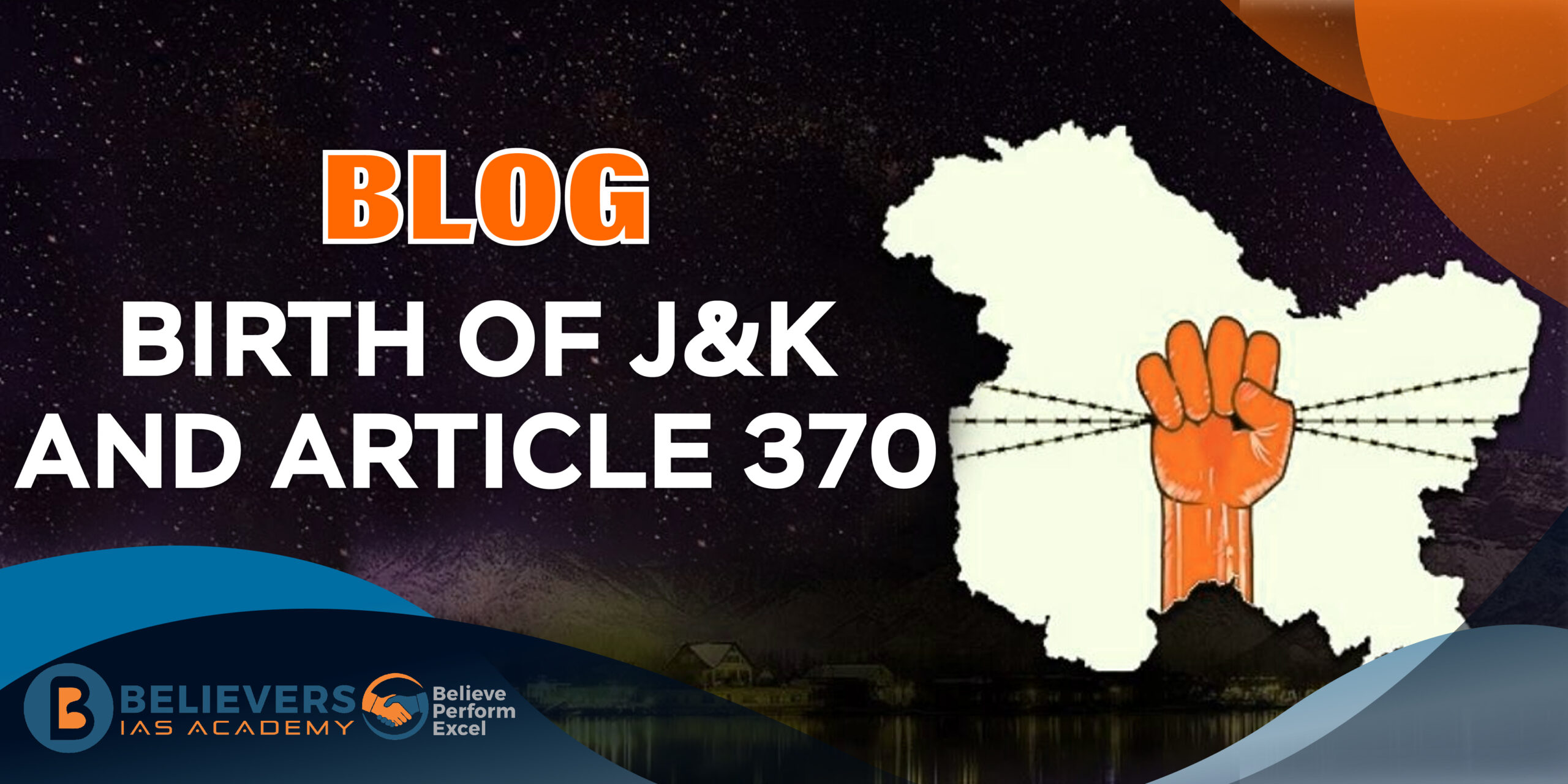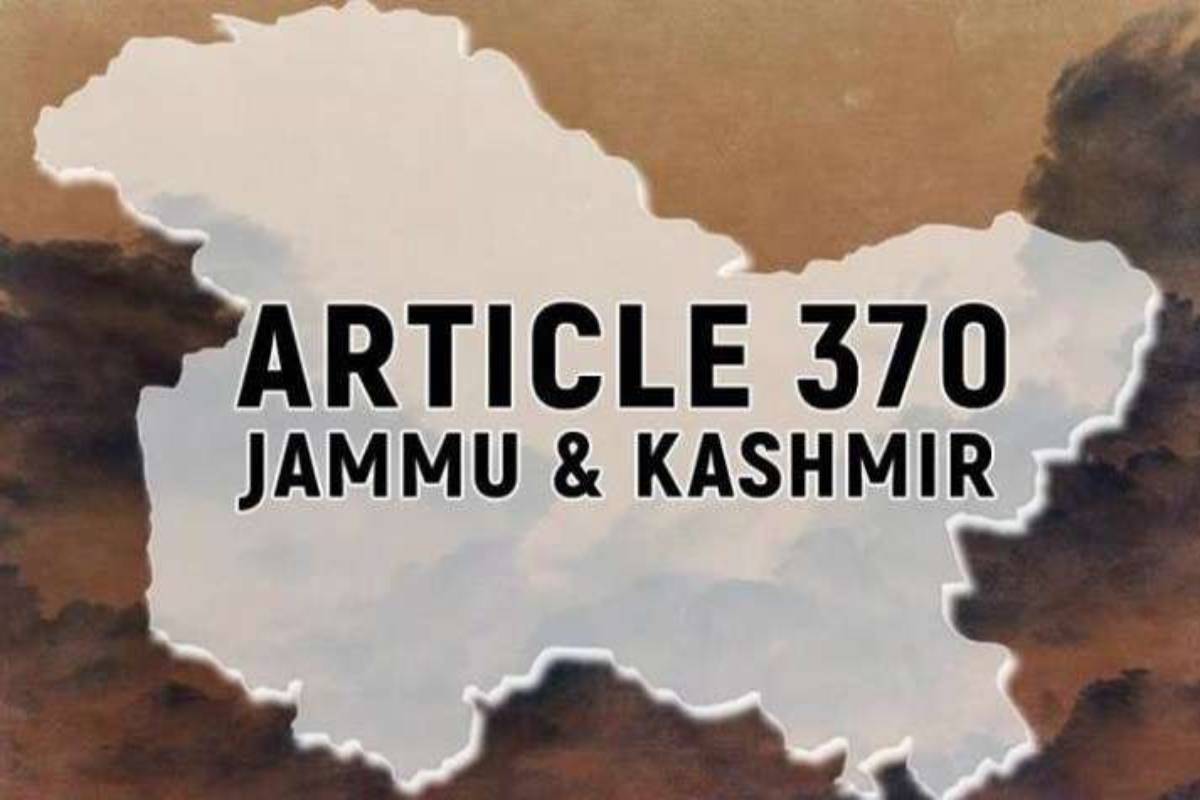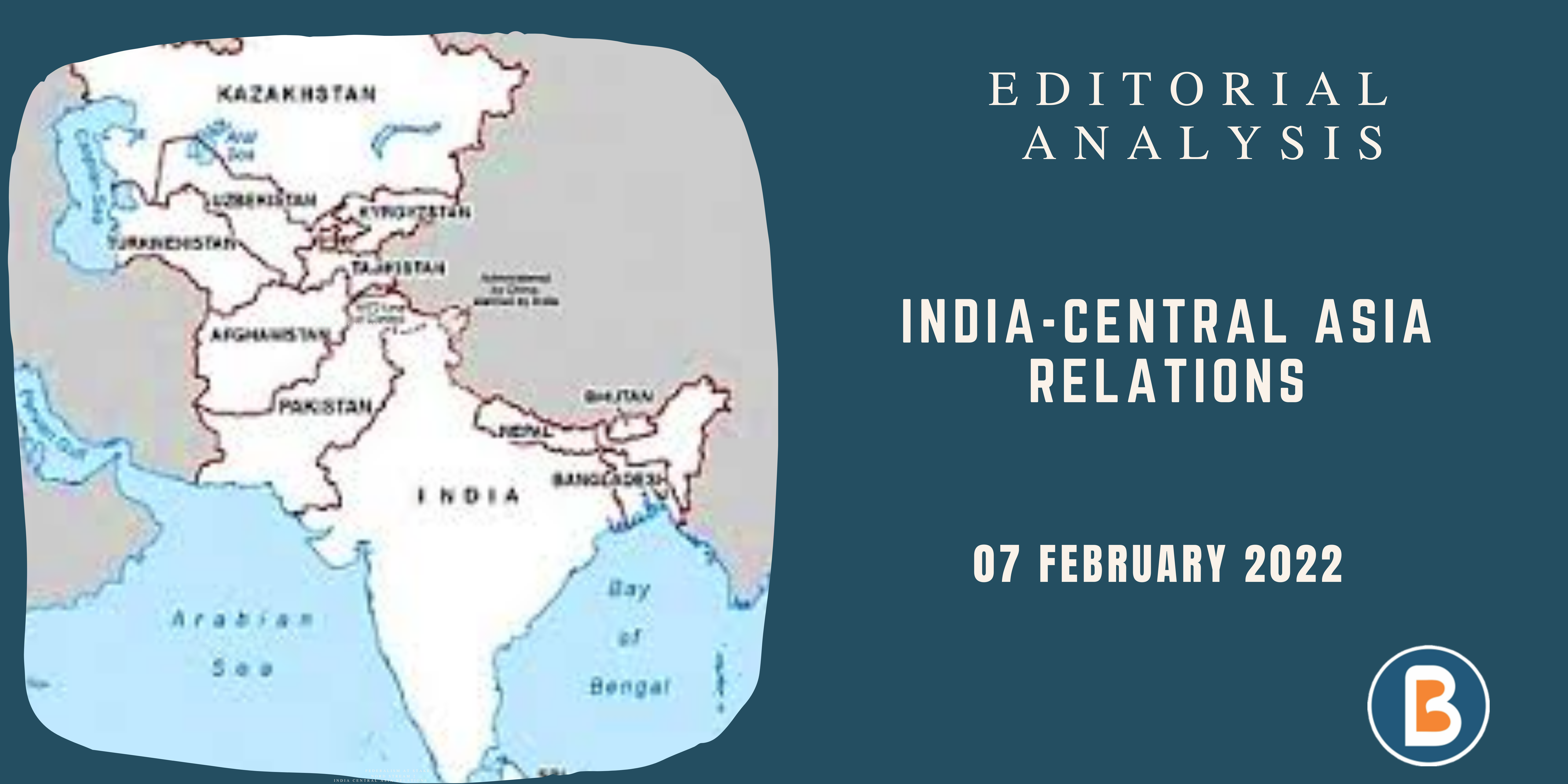Birth of J&K and Article 370
History of J&K
The historical context and events that led to Jammu and Kashmir’s accession to India:
- Partition of British India: British India was partitioned into two independent countries, India and Pakistan, upon its independence in 1947. This division was based on religion. Depending on their location and the dominant religion of their populace, the princely states, which were independent nations ruled by the British, were given the option to join either India or Pakistan.
- Princely States and Accession: With a population that included Muslims, Hindus, and Buddhists, Jammu and Kashmir was one of India’s largest princely states. Maharaja Hari Singh served as its monarch. Given that it bordered both Pakistan and India, the state’s location was crucial.
- Accession Dilemma: The choice of whether to join India or Pakistan presented Maharaja Hari Singh with a dilemma. The princely state’s populace was predominately Muslim, while the ruler was Hindu. The decision was further complicated by the state’s proximity to both dominions.
- Tribal Uprising and Invasion: Tribal forces from Pakistan invaded the princely state in October 1947 to seize it. Maharaja Hari Singh asked India for help in fending off the invaders. In exchange for the state’s accession to India, he signed the Instrument of Accession, allowing India to offer military assistance.
- United Nations Involvement: The United Nations took note of the violence and adopted a resolution asking for a cease-fire and a referendum to decide the state’s future. However, due to disagreements between India and Pakistan over its terms and conditions, the vote was never held.
- Special Status and Article 370:Jammu & Kashmir was given a unique status under Article 370 of the Indian Constitution as part of the Instrument of Accession. Except for military, foreign policy, and communications, this permitted the state to have its constitution and degree of independence in several sectors.
What is Article 370?
Jammu and Kashmir was given a unique autonomy status within the Indian Union under Article 370 of the Indian Constitution. It was incorporated into the Constitution as a “temporary provision” to acknowledge the special circumstances surrounding Jammu and Kashmir’s admission to India in 1947.
- Temporary Provision: Article 370 is a part of the Indian Constitution’s Part XXI, which is devoted to “Temporary, Transitional and Special Provisions.” It was viewed as a clause that would only be in place temporarily, up until the state constitution was created and approved.
- Autonomous Status: Jammu and Kashmir’s state was granted exceptional autonomy under Article 370. It permitted the state to have its constitution, which could address all issues except the three listed in the Instrument of Accession: communications, foreign affairs, and defence.
- Limited Application of the Indian Constitution: The Indian Constitution only applied partially to Jammu and Kashmir; several of its articles were rendered inapplicable or could only be implemented with amendments there. Jammu & Kashmir was able to maintain some level of legislative and executive independence from the federal government as a result.
- State Flag: In addition to the Indian flag, Jammu and Kashmir are allowed to fly their flag.
- Sovereignty over Internal Matters: Residents of the state had different rights and were subject to different laws than people living in other Indian states. The rules governing citizenship, property rights, and fundamental freedoms were all unique to Jammu and Kashmir.
- exceptional Rights and Privileges: The Jammu and Kashmir state assembly was given the authority to define “permanent residents” and provide them exceptional rights and privileges under Article 35A, which was later added by a Presidential Order. These privileges included exclusive property ownership and employment in the public sector.
- Concurrence of State Constituent Assembly: According to the article, the state’s constituent assembly must agree before any provisions of the Indian Constitution that apply to Jammu and Kashmir can be changed. The special status of the state could only be changed with the consent of its representatives thanks to this system.
- Revocation: Under the leadership of Prime Minister Narendra Modi, the Indian government revoked Article 370 in 2019. This resulted in Jammu and Kashmir losing their special status and being divided into the Union Territories of Jammu and Kashmir and Ladakh. Both domestically and internationally, different responses and discussions followed the decision.
What is Delhi Agreement and How is it related to J&K?
Article 370 of the Indian Constitution is intimately tied to the Delhi Agreement, often referred to as the Delhi Agreement of 1952. The deal was a bilateral accord between the leaders of Jammu & Kashmir and the Indian government. Concerning the state’s autonomy and the implementation of the Indian Constitution, it sought to clarify the relationship between Jammu and Kashmir and the Indian Union.
- Context: After Jammu and Kashmir joined India in 1947, negotiations about the level of integration and autonomy the state would maintain within the Indian Union continued between the state’s leadership and the Indian government. The Delhi Agreement of 1952 was the result of these negotiations.
- Article 370: As was previously noted, Article 370 was a clause in the Indian Constitution that gave Jammu and Kashmir a special autonomy status. Except for military, foreign policy, and communications, it permitted the state to have its constitution, flag, and administrative autonomy.
- Purpose: The Delhi Agreement was signed on July 24, 1952, between Jawaharlal Nehru, the Prime Minister of India, and Sheikh Abdullah, the Prime Minister of Jammu and Kashmir at the time. The purpose of the agreement was to make clear and official the conditions governing Jammu and Kashmir’s relationship with the Indian Union. It attempted to address worries and desires regarding the autonomy of the state.
- Jammu & Kashmir opted to adopt Indian citizenship and align its constitution with the Indian Constitution to become more integrated into the Indian Union.
- The Indian government pledged to uphold Jammu and Kashmir’s unique status as stipulated by Article 370. This implied that the state will maintain its own constitution and internal autonomy.
What is the way forward to maintain peace since the repealing of Article 370?
- Dialogue and diplomacy: The long-standing problems with Jammu and Kashmir must be resolved through peaceful dialogue between India and Pakistan. To address the concerns of both sides, diplomatic efforts could concentrate on confidence-boosting measures, open channels of communication, and establishing common ground.
- Inclusive Governance: It is crucial to make sure that Jammu and Kashmir’s government is inclusive and reflective of the region’s diverse population. This includes taking into account the ambitions of different racial and religious groups in the area.
- Economic Development: Focusing on economic growth and investment in the area has the potential to raise living standards, produce jobs, and give residents access to opportunities. The development of stability and the easing of tensions can be facilitated by economic growth.
- Human Rights and the Rule of Law: Any lasting solution must uphold human rights while advancing justice and guaranteeing the rule of law. People’s trust and confidence can be increased by addressing problems with security, accountability, and violations of human rights.
- Engaging Local Leadership: It’s crucial to interact with community members, civil society organizations, and local leaders to comprehend the issues and priorities that are essential to the people of Jammu and Kashmir. Their opinions can aid in making well-informed choices.





